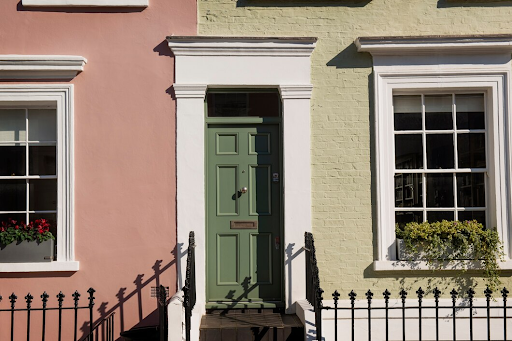Composite doors have gained significant popularity among homeowners and construction professionals due to their distinct qualities and outstanding durability. With their combination of robustness, energy efficiency, and aesthetic appeal, composite doors stand out as a superior choice, particularly in environments that face harsh weather conditions. Their durability in harsh weather is a key factor that sets them apart from solid wooden, uPVC, or aluminum doors. Unlike these traditional options, composite doors offer unparalleled resilience, making them an excellent investment for long-term use. This article explores the factors of composite doors durability in harsh weather, especially in challenging weather conditions.
What Are Composite Doors?
Composite doors are exterior doors constructed from a blend of materials, each selected for its unique properties. Typically, these materials include wood, PVC, insulating foam, and GRP (Glass Reinforced Plastic). This combination addresses the common problems associated with single-material doors. The solid wooden core provides strength and insulation, while the PVC and GRP layers protect against external elements. This multi-layered approach ensures composite doors are durable, energy-efficient, and secure, making them an ideal choice for those seeking a robust, weather-resistant door option.
What Makes Composite Doors Durable?
The durability of composite doors in harsh weather comes from their multi-material construction, starting with a solid wooden core that provides strength and stability. This core is often reinforced with a steel frame for extra toughness. The insulating foam layer enhances energy efficiency and prevents moisture absorption, which helps avoid warping and swelling in humid conditions. The outer layer, made of GRP (Glass Reinforced Plastic), offers excellent resistance to environmental damage, including scratches, dents, and fading, ensuring the door remains durable and low-maintenance over time.
Weather Resistance of Composite Doors
Composite doors are specifically designed to withstand extreme weather conditions. Their multi-layered structure provides them with the strength to resist damage from wind, rain, snow, and sun. Unlike wooden doors, which tend to expand and contract with changes in temperature and humidity, composite doors remain stable and unaffected by such fluctuations. This makes them a reliable choice for homes in areas with erratic or extreme weather patterns.
Resistance to Rain and Moisture
Rain and humidity can cause significant damage to traditional wooden doors, leading to warping, swelling, and rot. However, composite doors are built to resist water infiltration. The GRP skin acts as a waterproof barrier, preventing moisture from penetrating the door’s core. This waterproof feature ensures that composite doors do not suffer from the same deterioration that affects wooden doors, making them a practical option for homes in rainy or humid regions.
Salt Air and Corrosion Resistance
In coastal areas, exposure to salty air can lead to corrosion, especially for metal doors. Composite doors, with their combination of materials, are highly resistant to the corrosive effects of salt air. The GRP surface, in particular, does not corrode or rust, ensuring that the door remains in good condition even in coastal environments. This makes composite doors an ideal choice for seaside homes, where durability against salt exposure is crucial.
Wind and Noise Insulation
Composite doors are also known for their ability to withstand high winds, offering a higher level of stability compared to lighter doors made from uPVC or aluminum. In addition to wind resistance, composite doors provide excellent soundproofing. The combination of materials used in their construction helps block out external noise, making them an attractive option for homes in windy or noisy areas.
Warmth and Energy Efficiency
One of the key advantages of composite doors is their exceptional energy efficiency. Their design includes a solid core and insulating foam that significantly reduces heat loss. Rated ‘A+’ for energy efficiency, these doors help keep indoor temperatures stable by acting as a thermal barrier, which minimizes the need for heating in winter and cooling in summer. The insulating foam also blocks drafts and prevents cold spots, ensuring a comfortable indoor climate even in extreme weather conditions.
Securing Your Home with Composite Doors
Security is a major benefit of composite doors, thanks to their solid core, steel reinforcements, and advanced locking systems. These doors often incorporate multi-point locking mechanisms, which secure the door at multiple points along the frame, creating a formidable barrier against forced entry. The steel reinforcements and dense core material make it extremely difficult for intruders to breach the door, even with significant force. Additionally, the advanced locking systems are designed to resist tampering, providing an extra layer of protection.
Final Thoughts
The durability of composite doors in harsh weather conditions sets them apart from other door types. With their multi-layered construction and combination of materials, composite doors are designed to withstand the toughest environmental challenges, including extreme temperatures, heavy rain, high winds, and corrosive salt air. Their resistance to warping, moisture damage, and corrosion makes them a long-lasting investment for homeowners in all climates.

